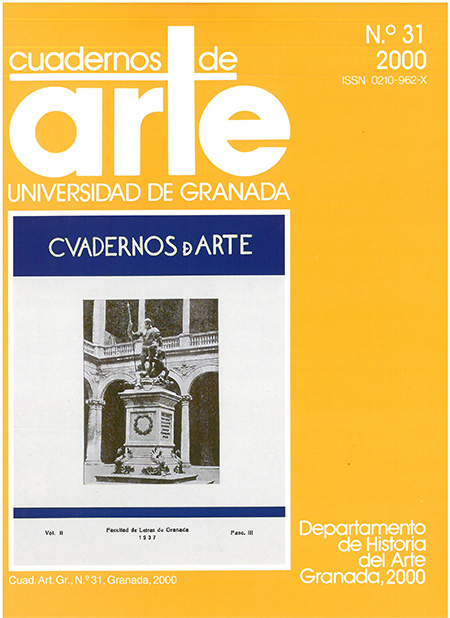André Breton and the question of the "work of art". Unconscious desire, idea and history in the surrealist negation of style I
Keywords:
Avant-garde art, Aesthetics, Theory of Art, Surrealism, Art criticismAbstract
André Breton's lecture in the Barcelona Athenaeum took place after his break with Dadaism but before the Surrealist Manifesto of 1924. In it he presented an outline of the situation which gave rise to surrealist concepts and thus the problems which avant-garde art was to encounter in the radical change it underwent during the period between the two World Wars. In the first part of this paper we follow Breton's argument, accepting its contradictions and limitations, so as to bring out one of the great discoveries of the Surrealists, expressed implicitly: the immanence and inter-subjectivity of desire.Downloads
Downloads
Published
2000-11-01
How to Cite
Cabello Padial, G. (2000). André Breton and the question of the "work of art". Unconscious desire, idea and history in the surrealist negation of style I. Cuadernos De Arte De La Universidad De Granada, 31, 213–232. Retrieved from https://revistaseug.ugr.es/index.php/caug/article/view/9067
Issue
Section
Estudios
License
Los autores que publican en esta revista están de acuerdo con los siguientes términos:- Los autores conservan los derechos de autor y garantizan a la revista el derecho de ser la primera publicación del trabajo al igual que ser licenciado bajo una licencia Creative Commons que permite a otros compartir el trabajo con un reconocimiento de la autoría del trabajo y la cita de la fuente original, con un uso no comercial y siempre que no se hagan obras derivadas.
- Los autores pueden establecer por separado acuerdos adicionales para la distribución no exclusiva de la versión de la obra publicada en la revista (por ejemplo, situarlo en un repositorio institucional o publicarlo en un libro), con un reconocimiento de su publicación inicial en esta revista.
- Se permite y se anima a los autores a difundir sus trabajos electrónicamente (por ejemplo, en repositorios institucionales o en su propio sitio web) antes y durante el proceso de envío, ya que puede dar lugar a intercambios productivos, así como a una citación más temprana y mayor de los trabajos publicados (Véase The Effect of Open Access) (en inglés).


 ISSN-e: 2445-4567
ISSN-e: 2445-4567








